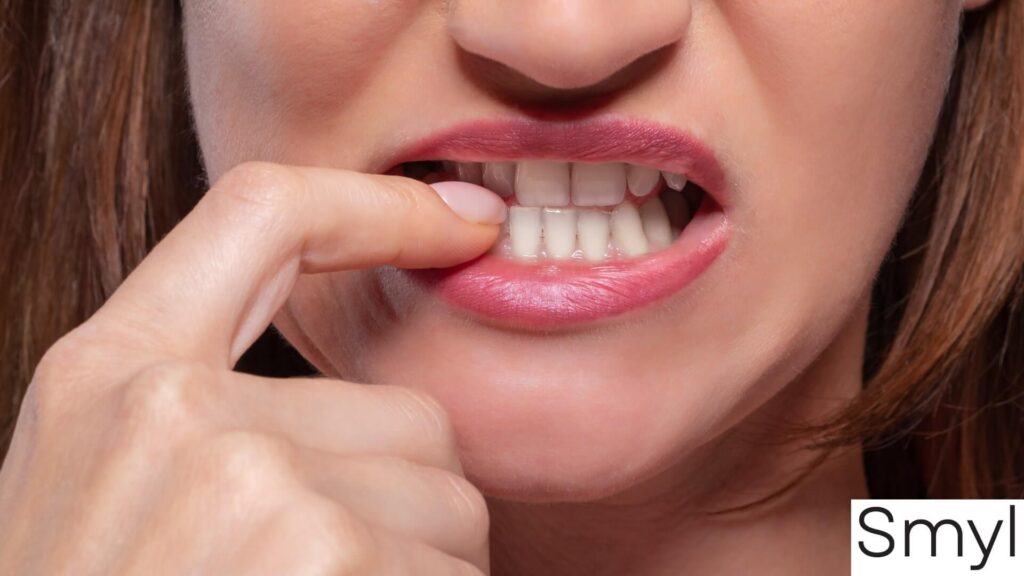
Some habits can be harmful to your teeth even if you don’t see immediate effects.
Damage doesn’t always occur right away, and it’s possible for signs to become visible only when the problem has already progressed. This makes it more beneficial to be aware of practices that may be compromising your oral health.
Here are some of them:
- Frequent SnackingFrequent snacking can be harmful because it promotes the constant buildup of food residues on teeth. These substances attract harmful bacteria and produce acids that eat away at the enamel, causing it to erode and decay over time.Plus, with poor oral hygiene habits, the risk of plaque and tartar accumulation increases further. Tartar keeps you from brushing and flossing your teeth effectively, which accelerates bacterial growth.Instead of grazing throughout the day, consider limiting snacks during mealtimes and drinking water afterward to help dislodge food debris.
- SmokingSmoking is an established risk factor for oral cancer, gum disease, and tooth discoloration.Nicotine can also lead to a dry mouth, increasing your chances of developing dental issues. This is because saliva is critical for reducing acidity in the mouth, replenishing minerals that the enamel is losing, and fighting harmful bacteria.In addition, smoking leaves behind stubborn stains on teeth that brushing cannot eliminate. Not to mention, it gives the mouth an unpleasant smell. Coupled with a heavy alcohol intake, smoking is also known to trigger oral cancer.The best way to keep your oral health safe is to quit the habit. Small steps taken consistently go a long way toward improving the condition of your teeth and gums.
- Heavy Alcohol ConsumptionExcessive alcohol intake can make you more susceptible to decay and cavities due to reduced salivary flow. It can cause dehydration, making the gums, mouth, and throat more prone to irritation.As the saliva flow decreases, bacteria tend to stay longer and multiply faster. Heavy drinking also weakens the immune system, which slows down recovery and makes it harder to combat infections such as gum disease.
- Nail BitingBiting your nails can erode the enamel or the outermost layer of the teeth, and this can result in chipping, splitting, and discoloration.Since harmful bacteria from under the fingernails can be transferred to the mouth, nail biting can further increase the chances of developing gum disease.Furthermore, nail biting can increase the risk of tooth misalignment and bruxism or grinding because of the pressure it applies to the teeth.
- Using Teeth as a ToolUsing your teeth as a tool can strain the enamel and result in damage.One wrong move can injure the soft tissues, such as the inner cheeks, lips, and gums. It can also result in a knocked-out tooth or a dental emergency.Popping bottle caps, for example, may appear convenient and entertaining, but it can be a choking hazard.
- Aggressive BrushingBrushing hard may make it seem like you’re removing more debris, but the extreme pressure can cause the enamel to erode and the gums to recede. Instead of brushing aggressively, pick a soft-bristled toothbrush and clean the teeth in a gentle, circular motion.Don’t rush; instead, cover all areas, particularly the back molars used for heavy chewing. Food residue can cling to surfaces and back areas, so it’s easy to miss them if you brush too quickly.
- Too Much Sugar IntakeLimiting your intake of sugary treats is essential for maintaining a healthy smile because doing so reduces the amount of time that sugars and acids are in contact with your enamel.Prolonged exposure to these substances can cause the enamel to erode over time, leading to discoloration, sensitivity, and decay. Saliva might not have enough time to wash away the food particles and germs that build up in your mouth, which can cause plaque to form.The key is to moderate consumption and opt for healthy snacks such as fruits or vegetables instead. Additionally, brushing your teeth and flossing daily can help protect your smile from the effects of sweets.
- Prolonged Thumb Sucking and Pacifier UseProlonged thumb sucking and pacifiers increase the risk of jaw misalignment since they put pressure on teeth and can cause them to shift out of place.They can also lead to problems with speech development, as they can keep a child from learning how to pronounce certain sounds properly. Thus, limiting thumb sucking and pacifier use is important for children to promote healthy teeth and proper speech development.
Do You Have Habits That Can Be Harmful to Your Teeth and Oral Health?
There’s more to maintaining optimal dental hygiene than investing in over-the-counter oral care products.
By avoiding the habits mentioned above and ensuring routine dental appointments, you can enjoy a healthy smile for years to come.
For more dental care advice in Toronto, ON, get in touch with us at Smyl Dentistry. We welcome patients of all ages, and referrals aren’t required to book your first visit.
Contact Information
- Phone: 416-531-2761
- Email: [email protected]
Address
- 608 Bloor Street W
- TORONTO, ON M6G 1K4
Hours
Parking
Green P parking on Palmerston and Euclid, residential street parking, meter parking on Bloor. Residential street parking from 10a-12a
Subway
One block over from TTC subway station (Bathurst)

